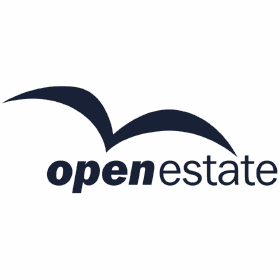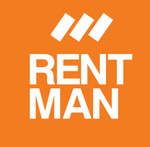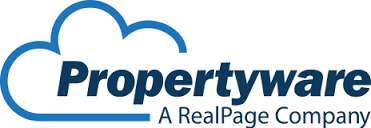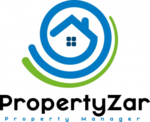Description

OpenEstate

Re-Leased
Comprehensive Overview: OpenEstate vs Re-Leased
As of my last update, OpenEstate and Re-Leased are two distinct software solutions catering primarily to real estate management, but they target slightly different market segments and offer unique functionalities.
a) Primary Functions and Target Markets
OpenEstate:
- Primary Functions: OpenEstate provides a comprehensive set of tools for real estate professionals, including property management, customer relationship management (CRM), and real estate marketing solutions. It's particularly focused on supporting real estate agents and agencies in managing their listings, client interactions, and online real estate promotions.
- Target Market: OpenEstate primarily targets real estate agencies and professionals looking for an all-in-one solution to streamline their operations, enhance client communications, and manage property listings effectively. It is well-suited for small to medium-sized agencies.
Re-Leased:
- Primary Functions: Re-Leased is a cloud-based property management platform specifically designed for commercial property. Key functionalities include lease management, property accounting, tenant communication, and reporting tools. The platform aims to automate repetitive tasks and offer comprehensive analytics for better decision-making.
- Target Market: Re-Leased targets commercial property managers, landlords, and asset managers who oversee multiple properties. Its features are tailored for the complexities associated with commercial real estate, accommodating a range of property types from retail spaces to office buildings.
b) Market Share and User Base
The exact market share and user base specifics can be difficult to pinpoint without recent proprietary research. However, we can make some general observations:
- OpenEstate: Being more consumer-focused in the residential real estate market, OpenEstate likely has a broader potential user base given the size and variability of the residential market. Its adoption is primarily among small to medium-sized agencies which can result in a higher numerical user base, though not necessarily larger market share in revenue terms compared to the commercial sector.
- Re-Leased: With its focus on the commercial sector, Re-Leased targets a niche but highly profitable market. This specialization may result in a smaller user base compared to OpenEstate in numerical terms but could capture a significant portion of the commercial property management software market due to the higher transaction values typical in this sector.
c) Key Differentiating Factors
OpenEstate:
- Customer-Centric Tools: Offers robust CRM capabilities explicitly designed for real estate needs, assisting agents with lead management and client follow-ups.
- Marketing Focus: Strong emphasis on online property marketing and website integration, which helps agencies promote listings more effectively.
- Simplicity & Accessibility: Targeted at residential markets, OpenEstate solutions tend to be simpler and more accessible for smaller agencies without large IT infrastructure.
Re-Leased:
- Commercial Expertise: Specialization in commercial real estate management with tailored tools for lease management and property-specific financial reporting.
- Automation: High focus on automating property management workflows, reducing manual tasks, and integrating well with existing commercial property processes.
- Scalable for Larger Enterprises: While it serves multiple property types, Re-Leased's architecture is well-suited for larger clients managing extensive property portfolios.
Each platform serves its niche with distinct strengths, and the choice between them would largely depend on whether the user is more aligned with residential or commercial real estate management needs.
Contact Info

Year founded :
Not Available
Not Available
Not Available
Not Available
Not Available

Year founded :
2013
+64 800 004 615
Not Available
New Zealand
http://www.linkedin.com/company/re-leased
Feature Similarity Breakdown: OpenEstate, Re-Leased
As of my last update, I don't have exact details on the latest iterations or roadmap specifics for OpenEstate and Re-Leased, but I can provide a general approach you can take when trying to understand their similarities and differences:
a) Core Features in Common:
-
Property Management:
- Both OpenEstate and Re-Leased offer comprehensive property management capabilities, allowing users to manage residential, commercial, or mixed-use properties efficiently.
-
Lease Management:
- Tracking lease terms, automating renewals, and managing lease agreements are fundamental features available in both platforms.
-
Tenant and Contact Management:
- Both systems provide tools to manage tenant details, communications, and contacts, facilitating better relationship management.
-
Financial Management:
- This includes features like rent collection, billing, and invoicing, as well as tracking expenses and other financial transactions.
-
Reporting and Analytics:
- Both platforms offer reporting tools to provide insights into property performance, occupancy rates, and financial health.
-
Maintenance Management:
- Features to handle maintenance requests, work orders, and vendor management are present in both systems.
b) User Interface Comparison:
-
OpenEstate:
- Generally known for providing open-source software solutions. Its user interface might lean towards a more customizable configuration, enabling users with more technical knowledge to tailor the experience to their specific needs. However, being open-source might mean that out-of-the-box UI aesthetics and user-friendliness can vary depending on how it's implemented and customized.
-
Re-Leased:
- Re-Leased is a commercial product, and its UI is typically designed to be polished, modern, and user-friendly right out of the box. Emphasis is often placed on intuitive navigation and reducing the learning curve for new users. The design often focuses on delivering a clean and efficient user experience, suitable for property managers who need straightforward operation without much need for customization.
c) Unique Features:
-
OpenEstate:
- Open-Source Nature: The most distinctive feature of OpenEstate is that it is open-source, which allows users to fully customize and extend the software according to their needs, provided they have the technical skills to do so.
- Community Driven: The development and enhancement process can be driven by its user community, offering flexibility in adopting new features quickly based on community needs.
-
Re-Leased:
- Cloud-Based Solution: Re-Leased typically offers a robust cloud-based platform, which provides flexibility and accessibility from any internet-connected device. This is ideal for users who need access to their property management system from various locations.
- Integrations and Automation: Re-Leased often emphasizes seamless integrations with other business tools and advanced automation features, such as automatic reminders for lease expirations or streamlined workflows for invoice processing.
For the most accurate and detailed analysis, I recommend checking the latest product features from both companies’ official resources or conducting a direct product comparison through demos or user reviews.
Features

Not Available

Not Available
Best Fit Use Cases: OpenEstate, Re-Leased
OpenEstate and Re-Leased are software solutions tailored for the real estate industry, each offering unique features catering to different needs and contexts within the property management sector.
OpenEstate
a) Best Fit Use Cases:
-
Real Estate Agencies and Brokers: OpenEstate is particularly well-suited for real estate agencies and brokers that require a comprehensive solution for managing property listings, client relationships, and transactions. It supports various formats and offers integration with other platforms, making it ideal for entities needing a centralized data management system.
-
Small to Medium-Sized Enterprises (SMEs): OpenEstate's open-source nature makes it an attractive option for SMEs that might need a customizable and cost-effective solution. It allows them to adapt the software according to specific requirements without significant investment in proprietary software.
-
Multi-Language and Multi-Region Support Needs: Businesses operating in diverse geographic locations can benefit from OpenEstate's support for multiple languages and international standards, enabling easy adaptation to local markets.
b) Scenarios for Re-Leased:
-
Commercial Property Management: Re-Leased is a cloud-based property management solution, primarily tailored for commercial real estate operators. Its features for handling complex lease structures, tenant communications, and financial operations make it an optimal choice for businesses mainly dealing with commercial properties.
-
Property Owners and Managers: It's ideal for property owners and managers looking for a robust platform to manage property portfolios, streamline operations, and improve tenant interactions. Re-Leased provides tools for lease management, automated reminders, and financial reporting, which are crucial for maintaining efficiency and compliance.
-
Growth-Ready Businesses: Companies undergoing rapid growth or managing a large property portfolio may prefer Re-Leased due to its scalability and comprehensive suite of property management features that support expansion without requiring significant additional resources.
d) Catering to Different Industry Verticals or Company Sizes:
-
OpenEstate: By being open-source, OpenEstate is particularly attractive to organizations seeking flexibility and control over their software environment. It caters well to smaller companies or those with highly specific needs, such as niche real estate markets or startups with innovative business models, who have the technical capacity to modify and maintain their systems in-house.
-
Re-Leased: Suits larger enterprises or those in the commercial property sector needing a robust, out-of-the-box solution with strong support and regular updates. Its scalability makes it suitable for growing companies across various regions, providing standardized processes across a potentially broad geographic spread.
In conclusion, the choice between OpenEstate and Re-Leased significantly depends on the size, scope, and specific requirements of the business or project, with OpenEstate preferred for flexibility and customization and Re-Leased ideal for comprehensive, scalable commercial property management.
Pricing

Pricing Not Available

Pricing Not Available
Metrics History
Metrics History
Comparing teamSize across companies
Conclusion & Final Verdict: OpenEstate vs Re-Leased
To provide a conclusion and final verdict between OpenEstate and Re-Leased, it's important to evaluate the products based on several key factors including features, usability, pricing, customer support, and overall value. Here's a comprehensive analysis:
Conclusion and Final Verdict
a) Best Overall Value
Re-Leased offers the best overall value for most users, primarily due to its comprehensive feature set that caters to a wide range of real estate management needs, its strong customer support reputation, and competitive pricing that provides flexibility for different scales of operations. While OpenEstate may have its own unique advantages, Re-Leased generally appeals to a broader audience with its user-friendly interface and robust capabilities.
b) Pros and Cons
OpenEstate:
Pros:
- Customization: Offers a high level of customization, making it ideal for niche markets or specialized needs.
- Open Source Flexibility: Being open source, users have the liberty to modify and enhance the software to suit their specific requirements.
Cons:
- Technical Expertise Required: Users often need significant technical skills to fully leverage its capabilities and maintain the system.
- Limited Support: Reliance on community support may not be sufficient for businesses needing immediate assistance.
Re-Leased:
Pros:
- Comprehensive Features: Provides an extensive range of features that cater to commercial property management, including lease management, financial reporting, and tenant communication tools.
- Ease of Use: Intuitive interface and cloud-based accessibility make it easy for teams to collaborate and manage properties efficiently.
- Customer Support: Known for its proactive customer support, which enhances the user experience and mitigates potential operational issues quickly.
Cons:
- Cost: Subscription fees can add up, especially for smaller operations or startups with limited budgets.
- Feature Overhead: Some users may find the rich feature set overwhelming, especially if they primarily need basic management tools.
c) Recommendations
For users who are trying to decide between OpenEstate and Re-Leased:
-
Consider Re-Leased if you are looking for a comprehensive, out-of-the-box solution that provides strong support and a wide array of features to handle various aspects of property management. Its intuitive design and support infrastructure are ideal for businesses seeking efficiency and reliability without delving into technical modifications.
-
Opt for OpenEstate if you have access to technical expertise and require a solution that can be tailored specifically to your unique requirements. It is a particularly good choice for users who value flexibility, are working within a tight budget, or are part of a tech-savvy team capable of managing an open-source platform.
Ultimately, the decision will depend on the specific needs and capabilities of the users, including their technical expertise, budget considerations, and the scale of property management operations they intend to undertake.
Add to compare
Add similar companies




